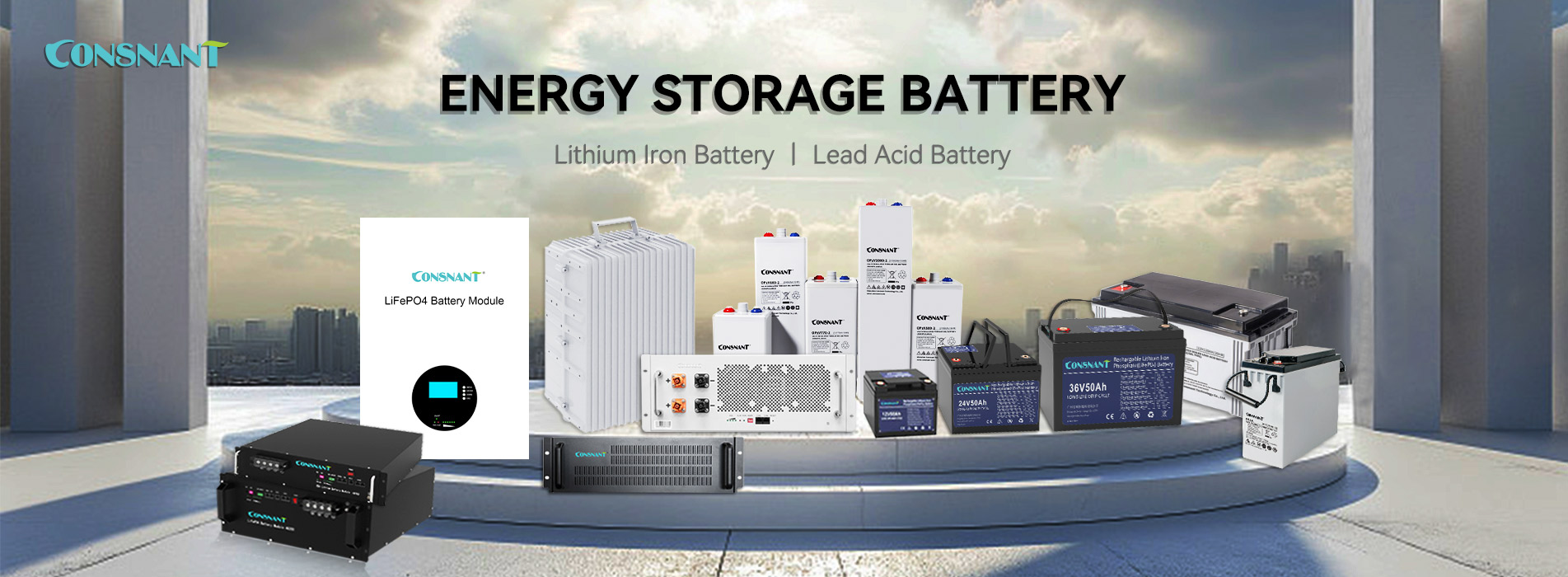- Tel: 0086 13501592453
- Email: sales@consnant.com

Battery System Application Solutions
Oct 10, 2024CONSNANT Battery System Application Solutions: A Comparison of Lithium Battery Systems and Lead-Acid Battery Systems

Introduction:
Battery systems play a crucial role in various applications, providing energy storage and backup power solutions. Two popular types of battery systems are lithium battery systems and lead-acid battery systems. In this article, we will explore the advantages and applications of these systems in UPS (Uninterruptible Power Supply), solar power systems, telecommunications power, electric vehicles,and energy storage.
Lithium Battery Systems:
Lithium battery systems have gained significant popularity in recent years due to their numerous advantages. Some key features and applications include:
1. UPS (Uninterruptible Power Supply):
Lithium battery systems offer a compact and lightweight solution for UPS applications. They have a high energy density, allowing for a smaller physical footprint and easier installation. Lithium batteries also provide fast response times, ensuring seamless power supply during grid outages and preventing data loss.
2. Solar Power Systems:
Lithium battery systems are well-suited for solar power systems, especially in residential applications. They can store excess energy generated by solar panels during the day and supply it during periods of low solar generation or at night. The high cycle life and efficiency of lithium batteries make them ideal for maximizing the utilization of solar energy.
3. Telecommunications Power:
Lithium battery systems offer efficient backup power solutions for telecommunications infrastructure. They ensure uninterrupted connectivity during power outages, enabling seamless communication services. Their compact size and high energy density make them suitable for installations in remote areas.
4.Electric Vehicles (EVs):
Lithium battery systems power electric vehicles, offering longer driving ranges and shorter charging times. They provide the necessary energy storage for EVs, making them a sustainable transportation option.
5. Energy Storage:
Lithium battery systems find extensive applications in various energy storage projects. Whether it is for grid stabilization, load shifting, or peak shaving, lithium batteries provide a reliable and efficient solution. They offer high charge/discharge efficiency, allowing for effective utilization of stored energy.
Lead-Acid Battery Systems:
Lead-acid battery systems have been widely used for many years and continue to be employed in specific applications. Here are some notable features and applications:
1. UPS (Uninterruptible Power Supply):
Lead-acid battery systems have a proven track record in providing backup power for UPS systems. They are cost-effective and have a long service life, making them suitable for applications where reliability is of utmost importance.
2. Solar Power Systems:
Lead-acid batteries are commonly used in off-grid solar power systems, especially in remote areas. They are rugged, reliable, and have a lower upfront cost compared to lithium batteries. However, lead-acid batteries have a shorter lifespan and lower energy density, requiring more frequent replacements and larger physical footprints.
3. Telecommunications Power:
Lead-acid battery systems have been traditionally used in telecommunications power applications. These batteries can withstand wide temperature ranges, making them suitable for outdoor installations. The lower upfront cost and widespread availability of lead-acid batteries make them a preferred choice in some telecommunications scenarios.
4. Automotive Industry:
Lead-acid battery systems are utilized in conventional internal combustion engine vehicles. They power various vehicle components and provide the energy required for ignition and starting the engine.
5. Energy Storage:
Lead-acid battery systems are also utilized in certain energy storage projects, especially those with moderate power requirements. They can store energy from renewable sources and provide backup power during peak load periods. However, lead-acid batteries require regular maintenance and have lower charge/discharge efficiency compared to lithium batteries.
Battery System Applications by Industry:
Battery systems find applications in various industries. Here are some notable examples:
- Residential Sector: Battery systems are used for residential energy storage, enabling homeowners to store excess energy and use it during high demand periods or power outages.
- Commercial Sector: Battery systems are employed in commercial buildings for load management, reducing peak demand charges, and providing backup power in case of grid failures.
- Industrial Sector: Battery systems are used to support critical manufacturing processes, provide backup power to sensitive equipment, and improve grid stability in industrial complexes.
- Telecommunications Sector: Battery systems ensure uninterrupted power supply to communication towers, data centers, and telecommunication infrastructure, preventing service disruptions.
- Renewable Energy Sector: Battery systems are an integral part of renewable energy projects, enabling efficient energy management, grid integration, and stability for wind farms and solar power plants.
Conclusion:
Battery system application solutions, including lithium battery systems and lead-acid battery systems, offer versatile and reliable power storage options for various industries. While lithium battery systems excel in terms of energy density, lifespan, and efficiency, lead-acid battery systems are still suitable for certain applications where cost-effectiveness and ruggedness are prioritized. As technology continues to advance, battery systems will play a crucial role in driving the adoption and implementation of sustainable energy solutions across different sectors.
"Empower your devices with our high-performance power supplies! 💡 Quality and reliability you can trust."